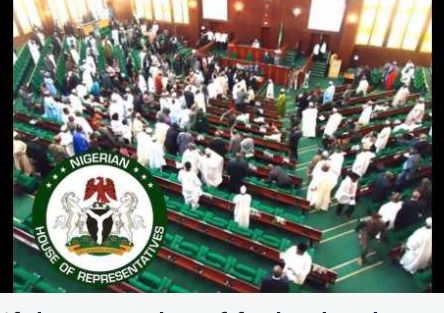Politics
Reps Disagree Over Special Parliamentary Seats For Women

By Linda Ike
The bill seeking to create special parliamentary seats for women in the National and state Houses of Assembly has passed a second reading in the House of Representatives.
Though, members of the house were sharply divided at plenary, on Tuesday over the proposed legislation.
The bill was sponsored by the Deputy Speaker of the House, Benjamin Kalu, and 13 other lawmakers.
Some members kicked against the proposed legislation, before the approval of the second reading, insisting that it would run counter to the constitution.
Patrick Umoh in his contributions said,
“we may sound very emotional about this bill. But the reality is that when a bill is being considered in the House of Representatives, we must accord with the principles as enshrined in the constitution of the Federal Republic of Nigeria. The law is that every law that is inconsistent with the law of the constitution of the Federal Republic of Nigeria, is to the extent of inconsistency void.
“My position is that we support equality of every individual. But we should oppose every law that challenges any position of the constitution. The constitution is clear in terms of equality, as it relates to gender, as it relates to race, as it relates to religion.
“We may be excited about the law today, but we must look at posterity. We must look at the ground norm of the Federal Republic of Nigeria, which is the constitution. And the constitution frowns at, race, sex or religion.”
Also, Billy Osawaru, cautioned the proponents to look at the implementation of the law, rather than wanting to appear fine on television.
Supporting the bill, Chike Okafor, pleaded with the house to pass the bill hence the deputy speaker was presiding.
He said “The chief sponsor is presiding. Let us respect that fact,”
Leading the debate earlier on the proposed legislation,, Joshua Gana, who is one of the sponsors of the bill said that it is seeking the alteration of Sections 48 and 49 of the 1999 Constitution ( as amended) to provide for one special seat for women, per state and in the Federal Capital Territory (FCT) effective from 2027.
Gana added that the bill is also seeking an alteration of “Section 91 to provide for three special seats reserved exclusively for women in Houses of Assembly of each State of the Federation which shall be spread across the three senatorial districts of each State…
” Consequential amendments to sections 71, 77, and 117 to ultimately establish special constituencies reserved exclusively for women, ensuring their direct election into and participation in legislative houses and processes at both the federal and state levels.”
The special seats, according to him, are subject to review every sixteen years.
“The rationale behind this amendment is grounded in the principles of fairness and inclusivity. Globally, Nigeria lags behind in women’s representation in parliament, ranking among the lowest. Countries that have implemented affirmative action, like Rwanda and Andorra, have seen significant strides towards gender equality in governance.
” This bill proposes a temporary measure of seat reservation for women to catalyze similar progress in Nigeria, ensuring that women’s perspectives and priorities are fully integrated into our national and sub-national decision-making processes.”
The lawmaker further stated that “the issue of gender equality and representation lies at the heart of our constitutional democracy. Despite the constitutional guarantee of equal rights, the representation of women in our Legislative Houses has been alarmingly low.
“In the 7th, 8th, and 9th Assemblies, women accounted for only 6.4%, 6.1%, and 2.7% of the Senate respectively; and 6.4%, 3.05%, and 4.7% of the House of Representatives respectively. These statistics underscore the urgent need for proactive measures to ensure equitable representation and amplify the voices of women in our legislative houses at the national and sub-national levels.”
The bill was eventually, passed a second reading after an extensive debate by the legislators and was referred to the Committee on Constitution Review, by The Deputy Speaker, Benjamin Kalu, who presided over the plenary,.
